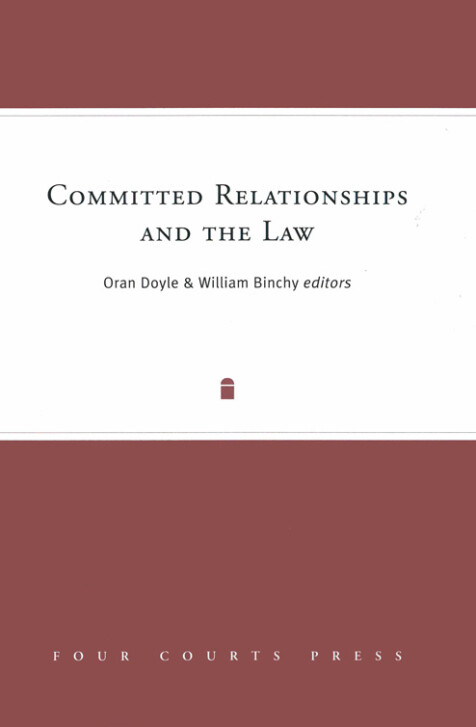Committed relationships and the Law
William Binchy & Oran Doyle
The questioning of traditional family forms is not a new phenomenon. However, it has recently developed a new dimension in the gay rights movement’s claim for legal recognition of committed relationships other than traditional marriage. This collection of essays explores the moral, practical and legal issues that arise from proposals to recognise such committed relationships. The history of the Irish gay rights movement and its contribution to the current issue of partnership recognition are traced by Fergus Ryan. The roles played by marriage in the procreation and raising of children and as the supreme expression of inter-personal commitment are explored from different perspectives by Lynn Wardle and Neville Cox.
Egalitarian arguments in favour of partnership recognition are advanced by Oran Doyle and Robert Wintemute, while William Binchy makes the case, on the basis of personal autonomy, for life-long marriage. John Mee explores in detail the current proposals for reform. Eoin Carolan and Eimear Brown assess the likely impact of the Constitution and the European Convention on Human Rights respectively. Ursula Kilkelly examines the issues that arise where children are born into – or become part of – the committed relationships of their parents.
This timely collection of essays will stimulate those interested in this issue and provide practical guidance on the legal scope for – and limits on – possible change.
Professor William Binchy is Regius Professor of Laws in Trinity College, Dublin. He lectures and has written widely in the areas of family and constitutional law. He is currently a member of the Irish Human Rights Commission. Dr Oran Doyle is a member of the Law School in Trinity College, Dublin, where he lectures in jurisprudence and constitutional law. He has written widely on issues of constitutional law and jurisprudence, particularly as they concern equality.

